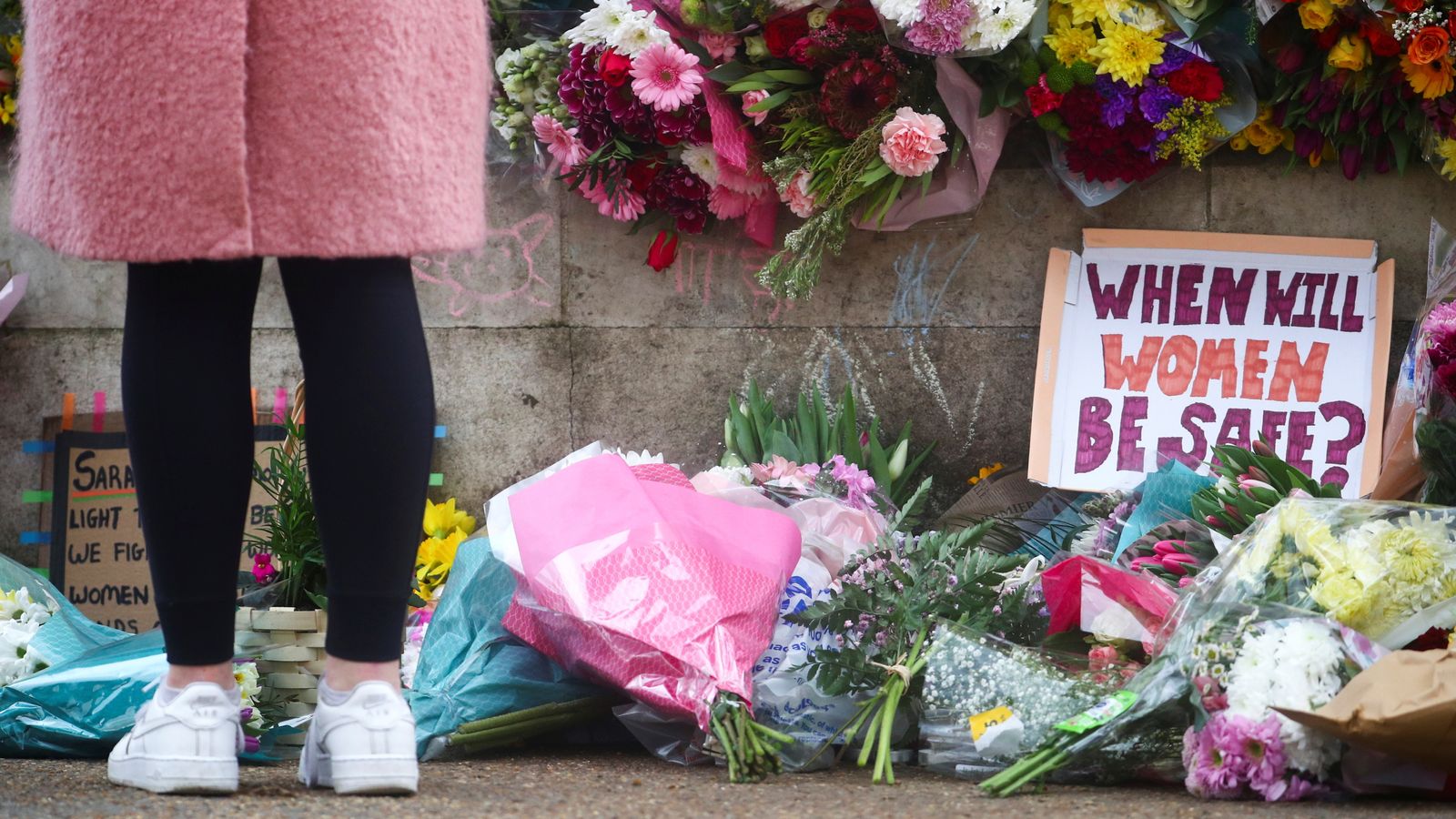The top police officer in charge of combatting violence against women and girls has cast doubt over the government’s hopes of halting a collapse in rape prosecutions in the next two years.
Deputy chief constable Maggie Blyth, the first national police lead for violence against women and girls, described sexual offences and domestic abuse as an “epidemic” and a “public health issue”.
Ministers have promised to halt a collapse in the number of rapists being brought to justice and vowed to return the number of charges and prosecutions to 2016 levels before the end of this current parliament, in 2024.
But, speaking to Sky News’ Beth Rigby Interviews… programme, Ms Blyth failed to state that target would be met.
“In terms of really changing the attitudes of men and boys towards women and girls is going to take time – that isn’t going to just happen overnight,” she said.
Read more: What can be done to stop violence against women and girls
“We have to have targets for improving both charges on prosecutions around rape and serious sexual offences and domestic abuse – we have to have those targets and the CPS and the police are working together around them.
“But we also have to be realistic that the criminal justice system alone – particularly on the back of the pandemic where we know we’ve got the backlog in the courts we have – it’s going to take time to bring those changes.”
Acknowledging there would be “some difficulties ahead”, she added: “It’s going to take years to really change our criminal justice system, being realistic.”
Ms Blyth, who is responsible for coordinating action across England and Wales, told Sky News she was “absolutely determined” to address an “epidemic” of violence against women and girls.
Read more: Are women safe on our streets?
But she admitted that police had “lost the trust and confidence” of many.
“We know, particularly in the last few months and some of the tragic deaths of women last year, have really, really changed how some communities – particularly women and girls – feel about policing,” she said.
“So, yes, we hear that trust and confidence issue.”
The Metropolitan Police has been struck by a number of scandals in little more than a year.
This includes the murder of Sarah Everard, revelations about the behaviour of officers at Charing Cross police station, and – in the past few days – the release of a report about a black schoolgirl, referred to as Child Q, being strip-searched without another adult present.
“The incidents and the cases and the particular matter around Child Q are really disturbing and are shocking – they shock me and the people that I work with,” Ms Blyth said.
“I think even more reason why we need to have a plan and a priority around tackling violence against women and girls.
“It’s on the level of an epidemic in terms of the information and the data that we have.”
And she stressed that – on the wider issue of violence against women and girls – police had to work with ” other agencies, with education, with the rest of the criminal justice system, with health – because ultimately this is, I think, a public health issue around violence”.






















